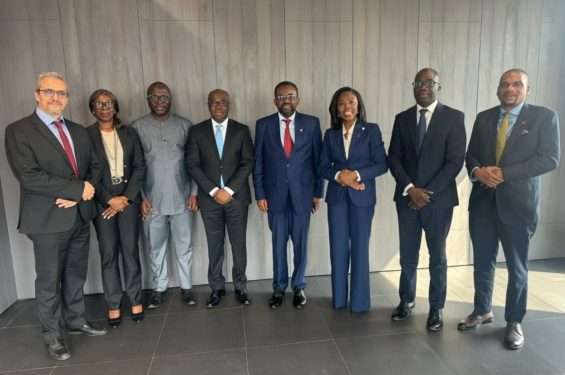Foreign ministers from the Group of Seven (G7) countries have expressed “strong concern” about the transfer of materials and weapons components from Chinese businesses to Russia.
The G7 ministers said that transfers of such material from Chinese companies were being used by Russia “to advance its military production.”
“This is enabling Russia to reconstitute and revitalise its defence industrial base, posing a threat both to Ukraine and to international peace and security,” they said, calling on China to stop its support “as it will only prolong this conflict and increase the threat that Russia poses to its neighbours.”
During their meeting on the Italian island of Capri, US Secretary of State, Antony Blinken urged his counterparts to increase pressure on China, which the United States accuses of supporting Russia’s war effort though its provision of critical components for weaponry.
Blinken stated that this was fuelling “the biggest threat to European security since the end of the Cold War.”
He told a news conference, “We see China sharing machine tools, semiconductors, other dual-use items that have helped Russia rebuild the defence industrial base.”
German Foreign Minister, Annalena Baerbock also said that her country could not accept China pursuing closer relations with Russia.
“If China openly pursues an ever closer partnership with Russia, which is waging an illegal war against Ukraine, … we cannot accept this,” she said after the meeting.
Instead, Baerbock called on China “to make use of its influence on [Russian President Vladimir] Putin.”
G7 Foreign Ministers Vow To Bolster Ukraine’s Air Defense Capabilities
Also on Friday, the Group of Seven (G7) Foreign Ministers in a statement promised to strengthen Ukraine’s air defense capabilities.
“We express our resolve in particular to bolster Ukraine’s air defense capabilities to save lives and protect critical infrastructure. We will also work with partners towards this end,” the Ministers stated.
The Ministers condemned recent attacks on Ukraine’s energy infrastructure and welcomed the launch of the Register of Damage caused by Russia’s war against Ukraine.
“Russia must pay for the damage and devastation it is causing,” the statement read.
Recent attacks against Ukraine’s energy infrastructure destroyed several thermal power plants across the country, including the key power Trypillia plant, the main electricity supplier to Kyiv, Zhytomyr, and Cherkasy oblasts.
In their communiqué, the G7 foreign ministers and the head of EU diplomacy condemned Russia’s aggressive war against Ukraine. They also reaffirmed their “unwavering determination” to support democratic Ukraine that defends its freedom, sovereignty, independence and territorial integrity within its internationally recognised borders.
“We are stepping up our defense and security assistance to Ukraine and are increasing our production and delivery capabilities to assist the country,” the statement read.
“We demand that the Russian Federation immediately, completely, and unconditionally withdraws all of its military forces and equipment from the internationally recognized territory of Ukraine. Russia can end this war today,” the diplomats said.
They called on all countries not to support or condone Russia’s attempts to acquire territory by force. They also stated that they would never recognise the legitimacy of the so-called “referenda” or “elections”, past or future, held by the Russian Federation in the temporarily occupied territories of Ukraine, as well as their results.
The diplomats also said that they support efforts to help Ukraine develop future armed forces capable of self-defenсe and deterring any aggression.
They also pledged to continue providing military, financial, political, humanitarian, and economic support to Ukraine and its people and to help Ukraine repair and rebuild its critical energy and environmental infrastructure.
The G7 Foreign Ministers added that they would consider using frozen Russian assets to help Ukraine.
READ ALSO: Government Accused of Reckless Borrowing Over Boankra Inland Port Project





















